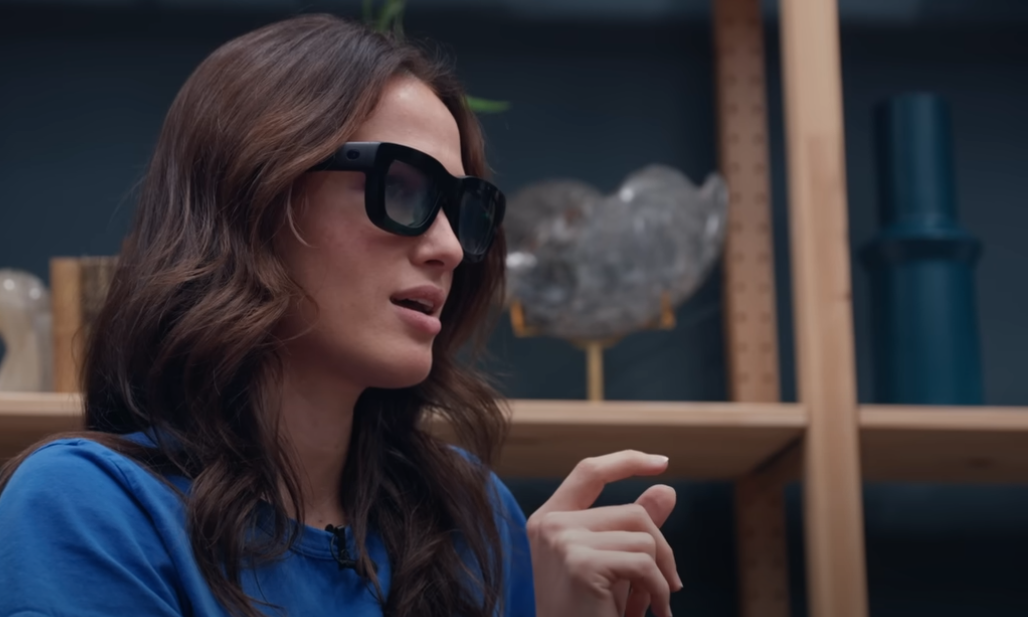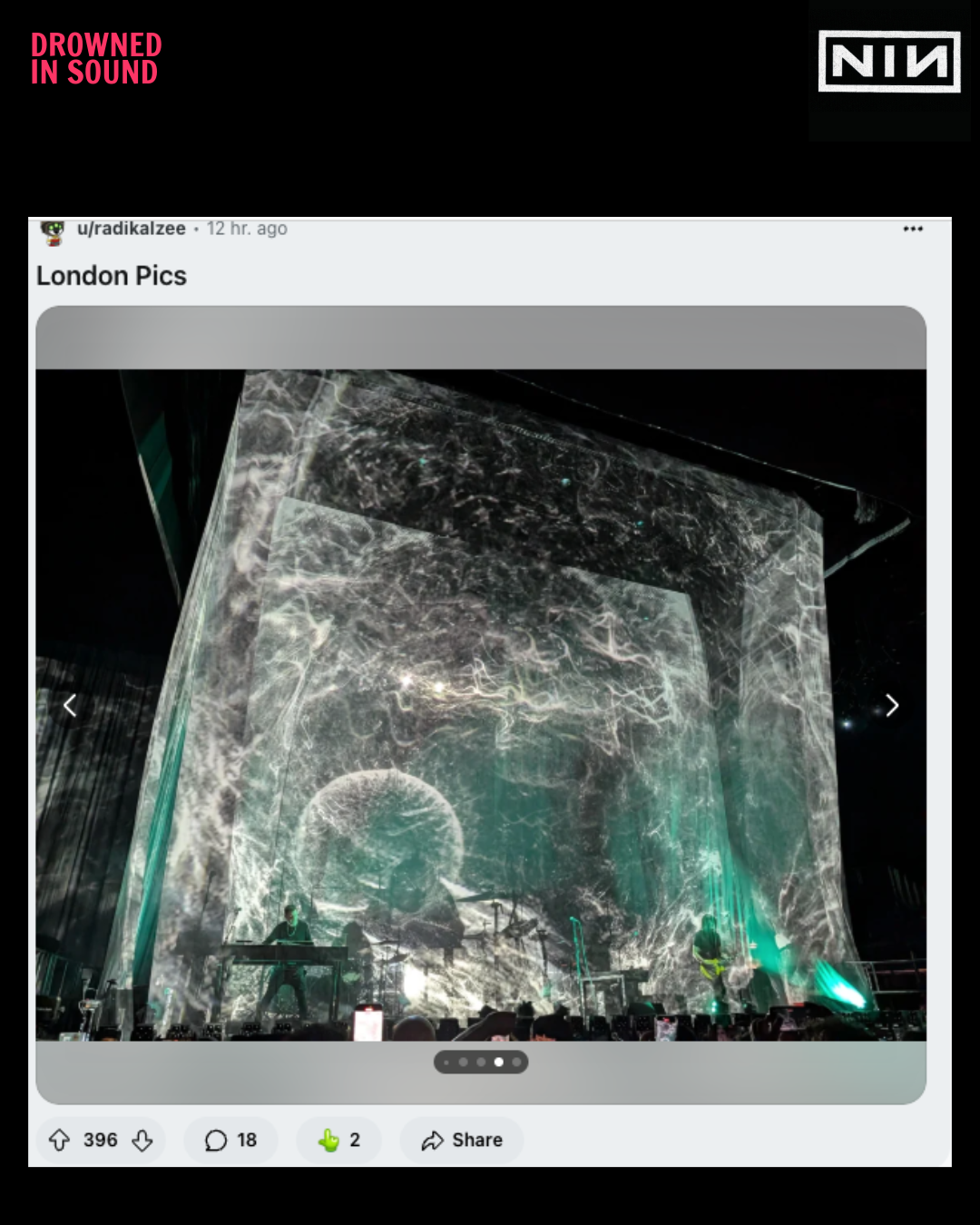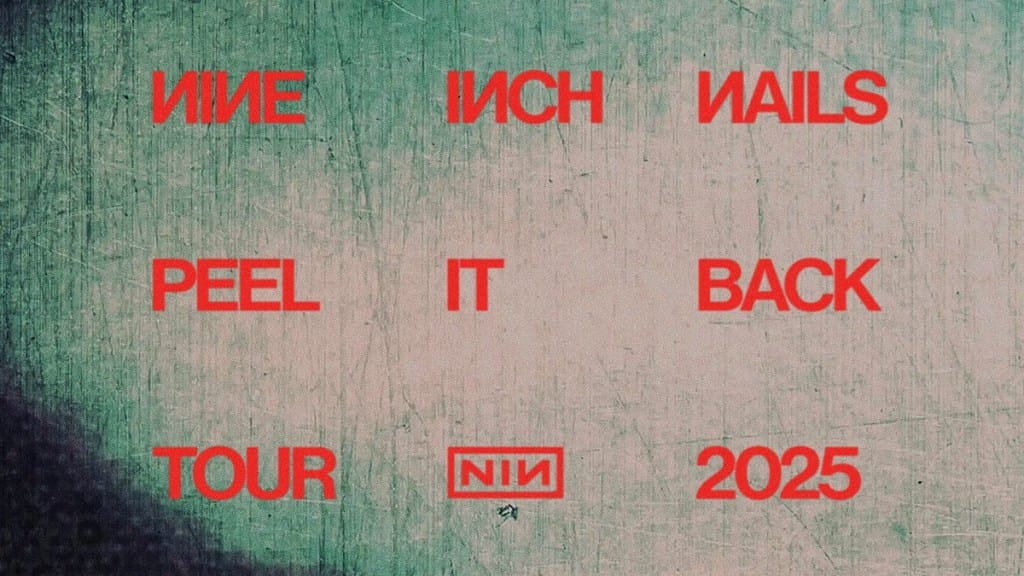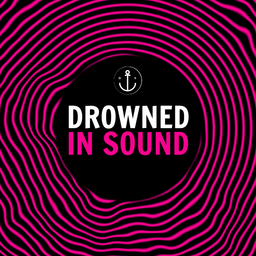Mixed Realities: What Meta, Google, and a rumour from Apple about 'smart glasses' means for music fans, and why we should focus on augmented intelligence, rather than the artificial. | Reading time: 8-10mins | 2,735 words
Contents
1) A Glance At The Future
2) Ideas: How Music Fans Could Use Smart Glasses
3) Broligarch Fears
4) AI Disclaimer
5) Further Reading
The Nu X-Ray Spex
"It's very hard for me to convince you that what I see is the future," says The Verge's reporter with a dead pan, semi-sarcastic shrug, when reviewing Google's new smart glasses using AndroidXR.
What the tech reporter is talking about is a glance of a future that's still loading. It's something that's almost ready and will be coming for your face in the post-phone world. These new-fangled internet-connected-spectacles will provide something like the hallucinations you get from taking shrooms at Glastonbury meets a virtual layer atop of the world around you.
Or to put it another way: rather than looking at a screen, you're looking through it.
Smart Glasses are going to be a huge leap forward for the consumption and creation of music, as well as more practical uses like getting colourful lights showing you which piano key to press (something you can already do with a headset like a Meta Quest or Apple Vision Pro).
XR, means extended reality. Think: Pokemon Go or an Instagram filter digitally projected onto the lens of glasses, adding (or "augmenting") a digital layer atop of what the eye can see.
For instance, a little arrow may pop up to show you where to turn left as you're walking to a record shop. Or a holographic mirage of pyrotechnics may appear at a tiny grassroots DIY gig. Or you could pull out a giant IMAX screen to watch an NPR Tiny Desk set on the train to work.
This technology may sound like deja vu all over again and you're not wrong. "Google Goggles" were briefly a thing back in 2010. Those dorky looking visors allowed a layer of pixels to be placed across the world and for it to also recognise what things were - like road names or translate languages in real time (sort of, after a bit of buffering).
What's coming on the horizon will be so much more than that.


If you're already zoning out about the promise of mixed reality or XR, stay with me. I promise I won't use lines like: "unlike Clark Kent, you can get super powers when you put your glasses on," and I'll try to avoid us collectively cringing at corporate-demo-speak.
(Sidebar: given the vast budgets of these corporations, why aren't they getting great script writers to write these speeches and give their words to world famous actors or at least competent content creators to deliver?! The role of hosting corporate demos will definitely end up being replaced by AI)
I may be cynical about most tech-bro hype but I'm really excited for what smart glasses could mean for freeing us from hunching over our desks, getting lost in our phones, and what it means for the evolution of music.
These smart glasses are essentially AI-powered computers you wear - using voice recognition, real-time translation, and cyborg vision.
Ideas: Smart Glasses For Music
Smart glasses could turn every surface into a potential music interface or porthole. For musicians, a teleprompter for sheet music or a 4D theremin map. For fans, a basic text layer could mean karaoke or getting optional liner notes-like context when a song is playing.
Now, let's step a little further and imagine artists creating visual layers that sync with their music - where looking at your turntable through smart glasses shows you the actual audio spectrum dancing above the vinyl before your entire room is mapped and turned into a music video set and the Beastie Boys suddenly crash through your window...
Here are a few more ideas of how I could foresee smart glasses being a big change for music:
Live Shows
Live music has barely evolved since I started going to gigs in the 90s, and smart glasses could radically change that. There are a lot of creative possibilities of concerts having a mixed reality layer.
Not only would a digital layer make a live show production far more interesting with explosions and unicorns and surreal art installations, but it could eventually stop the need for 50+ trucks to haul a massive stadium production of screens and lights around the world. Whether the entire crowd having to charge their glasses is better for the planet will take someone far better at estimating emissions than me.
Tbf, what I saw last week at Nine Inch Nails' London show (reviewed here), perhaps Trent Reznor is already living in this future:


Gig Listings
Little glimmers of hope don't end at the stage. I mean, imagine pointing your glasses at a venue wall and seeing who's playing next month - with 30-second previews floating above each poster and blink twice to reserve a ticket, which is discounted because it knows you're a patron of the venue.
Record Shopping
You walk into a record shop where every album cover comes alive and when you wink at a record, sample tracks start playing.
Or you're sat at your desk at work and just asking your glasses to drop you into these spaces allows you to virtually browse the new release rack - teleporting you in until you can drop by.
Music Collections
I love the idea of an online record collection becoming something more like a physical collection that you can crate dig through - and once you pick up the record, it's not just music but opens into a virtual world layered over your real space (was shocked AppleMusic didn't do this for VisionPro tbh). Being able to swap collections or browse someone else's, which is the best bit of going to a mates house or using Napster back in the day.
Listening Spaces
Records as portals are one idea but what about listening spaces with collaborative playlists and games where the winner of XR table tennis gets to control the stereo - suddenly choosing music becomes part of the social experience rather than an awkward negotiation. Listening together like this would bypass finding a weird little headphone splitter and instead wandering into any room or forest and turning it into a silent disco. And your glasses adding a disco ball filter that you can both see.
Music Unlocked On The Map
The potential for pilgrimages to places with geographically locked digital art installations or land-locked music could make the limited edition side of nature become far more of an adventure. Throw in the idea of new albums only being available at beach cleans or protests, and you could have musicians bringing back flash mobs. Or at least Starbucks paying Bruce Springsteen a bajillion dollars to host his new album in their stores.
Music Making
Imagine composing with visual feedback floating in front of you - seeing which frequencies clash, or collaborating with bandmates who appear as holograms in your living room turned into Abbey Road studio.
Music Magazines
As a magazine junkie, I've long been excited about the idea of animating the pages and bringing extended articles or video elements off the page of a publication. There's been a lot of cool experiments with smart phones over the years but a smart glasses layer feels like a great way that magazines and liner notes could have a whole new life.
Who Are Ya?
On a more mundane level, for forgetful people bumping into people at gigs, it will be interesting to see if we can get some sort of "networking mode" where people consent to Robocop-like facial recognition to avoid all the awkward trying to remember who someone is that you met once for 5 mins 15 years ago... and if there's someone there who has been listening to the same record as you this week, you get a little nudge to spark up a chat with that stranger about the album.
Accessibility
At a time when governments are scrapping a lot of inclusion funding, there are ways in which enhancing sound and vision could be hugely helpful for people. Smart glasses will also allow for translation in real-time, which could be great for understanding lyrics but it could be transformational for people with language processing issues. On the flip side, being able to silently flag your accessibility needs or preferred pronouns in someone's vision could also help break a lot of barriers or at least let more people move through the world with grace and understanding.
Back To The New Future
With Apple's Liquid Glass announcement meaning that they're potentially announcing their smart glasses in the coming weeks/months, the above ideas aren't distant sci-fi concepts, they're potentially next year's reality... and more realistically, the replacement for your phone in 3-5 years.
I fear - based on much of what's happening with AI - that this tech is not going to be built, overseen and led by people who care about consent, as much of the AI copyright discourse has shown.
But as exciting as this innovation might be when the likes of Bjork get their hands on it, it's still broligarch tech, carrying the values of the 20th century and male-dominated silicon valley into the future. The warning signs are already there, I mean RayBan are currently advertising their Meta glasses with built in cameras as being great for poolside, which is creepy af!
Relatedly: You can go much deeper on this in Laura Bates' new book, The New Age of Sexism: How the AI Revolution is Reinventing Misogyny. Support this newsletter and independent book shops by picking up your copy here.
Over tech overlords won't save us. We have a small cabal of out of touch billionaires and subservient product teams who often don't build tech with a clear purpose for most people. How we adapt to smart glasses and integrate this post-screen technology into our lives and how we embrace it as the creative industries is a choice. The decisions and precedents are being made now and the music industry urgently needs to be in the room where these conversations are happening.
There certainly aren't music fans running most music tech firms (just scroll Daniel Ek's social media and try to find him ever being passionate about any album as he is about his latest AI drone investments). Will we get tools that enhance musical discovery, or just attach some surveillance capitalism to our faces, that tracks which songs make us cry then tries to sell us some antidepressants? And let's not ignore the environmental cost - more devices, more data streaming, more energy consumption. Will augmented music experiences justify their carbon footprint? The data on this is so complicated that I wish I had a whole team of researchers and experts to process it.
For artists, the usual suspects will pioneer this - your Beyoncés and Travis Scotts who can afford the R&D. But the real question is whether these tools will eventually democratize or create bigger divides between artists who can afford augmented experiences and those who can't.
Of course, for these hand gesture and voice-controlled devices to be "smart" they'll need AI running everything...
AI Disclaimer
"Is this AI, Artificial, like sweetener? Or Augmented, like reality?" I keep asking questions like this, not with ChatGPT, Gemini or Claude, but with friends about AI. To my surprise, many haven't used it.
Some refuse to embrace AI because they're artists, musicians, photographers, writers or climate activists who have huge ethical concerns about the non-consensual copyright abuse or the extreme energy use (but they don't seem as bothered about the same hard-to-quantify emissions of Spotify, YouTube, Gmail, Netflix, etc).
I share all these fears and frustrations but I regularly utilise AI tools, in ways they hadn't considered.
Like, I'll check my comprehension of a legal term, translating the complexity of legalese and prod around until I'm sure I get it ("Do you mean like... or...? Would this be...?").
I'll sometimes feed it the key paragraphs from an article I'm working on and ask for the counter argument, so I can challenge my thinking and strengthen my writing. Which is in a time when we're battling the machines to reach, it is especially useful with improving headlines for SEO (Search Engine Optimisation) or ensuring photos & video captions have key words to satiate the algo gods (Claude suggested a bunch of titles for this rambling, for example "Stop Calling It Artificial: The Case for Augmented Intelligence").
Mostly, I use AI to prompt me, to agitate my thoughts, and to augment my skills.
I'll ask for sub-editor notes and suggestions, which is especially useful when you don't have a lawyer on hand and are about to speak truth to power at an event or hit send on an essay about power-abusing billionaire broligarchs.
I'll sometimes save an hour of loading ad-bloated websites by using Perplexity to research topics using search (and find the original source!) or Particle to read the news. Sometimes finding stories and rabbit holes I would never have wandered into online.
One way I really like to use AI is to probe into corruption and to find environmental options without wading through the greenwashing. I can literally get it to translate the marketing guff, for instance when podcast hosting solutions I'm considering using claim to be green, or to better understand why some carbon credits that stadium bands use are better than others.
All of which is to say that AI should be called Augmented Intelligence. We need to move beyond the artificial, generative, copyright-dredging, deepfake, "art" and focus on technology that allows us to be better humans. That helps us calculate the carbon emissions of different choices in a supermarket or gives us prompts we can't ignore to take the glasses off and go wander in nature.
It should be about infinite possibility but with our consent and everyone else around us. Instead, it currently feels as if it's being created as a replacement for 'knowledge workers' or anything that requires meticulousness. What it should be is a booster, speeding us up, forcing us to push further, not always doing so faster. Or giving us solutions, so that we have more time to pause or to live our lives, liberating us from desks and screens.
As streaming revenues plateau and artists seek new revenue options, augmented experiences could become the new deluxe edition.
In the meantime, AI is a great way for artists to work smarter, not harder, in a world where our connection is often mediated by social media algorithms that first require us to speak to the machine to cut through to our people. One day soon, we'll move beyond working for these content farms for free, until then, some tech can make that work of scripting and editing videos a little easier.
The big questions with smart glasses isn't whether they'll take off, but as the progress seems inevitable now, it's about how we'll use them: as thinking enhancers or thinking replacements? As creative tools or enhancing the skills we already have?
To put it another way, one potential future of music isn't just what we hear - it's what we see, touch, and share in the spaces between sound and reality. Who else is spying on us when we do it and how this is created and who profits, is a big bag of bees for another time but it's a buzzing sack that we can't ignore.
Final Thought
Is smart glasses the right name for these devices? This question brings me back to a line I think about a lot from Jaron Lanier's brilliant book You're Not A Gadget:
"You can't tell if a machine has gotten smarter or if you've just lowered your own standards of intelligence to such a degree that the machine seems smart."
Here's the AndroidXR review by The Verge, mentioned in the intro:
More on the Google blog or in this TED Talk:
Further Reading
- Data bill opposed by Sir Elton John and Dua Lipa finally passes (BBC)
- The Apple Hint Everyone Missed (Sinead Bovell)
- Bastille's VR experience case study (NME)
- Eminem's MTV VMAs AI performance breakdown (Virtual Producer)
- An interesting take on AI energy (Synsation's Instagram Story)
p.s. AI didn't write this, obvs. But in lieu of being able to afford any editorial staff, I did use it to get some sub-editor feedback. If anyone's interested in how I do this, I might make a video about it.



